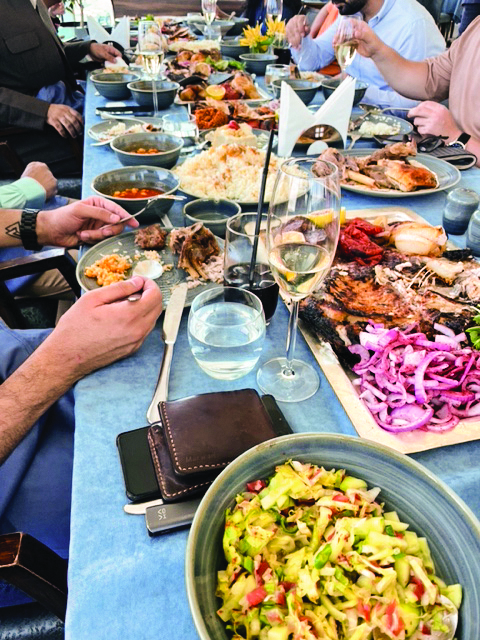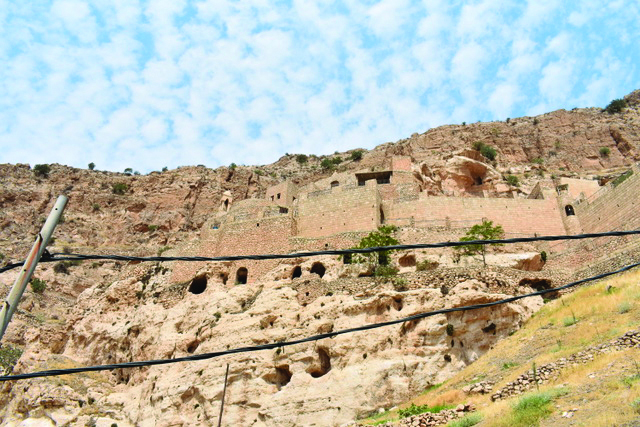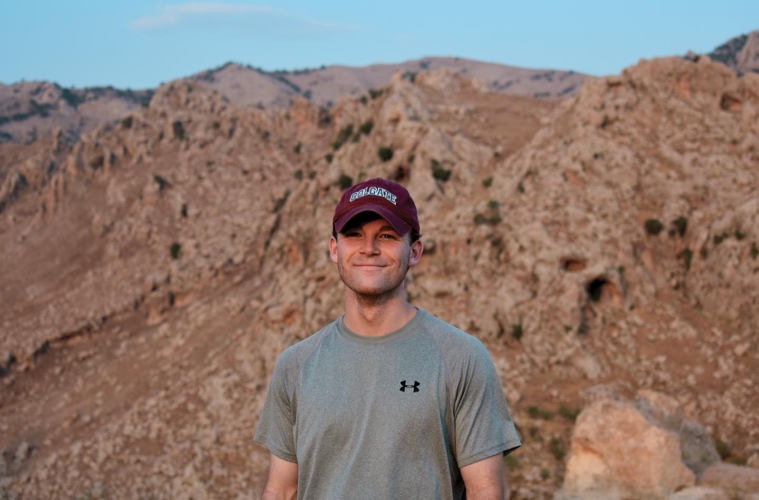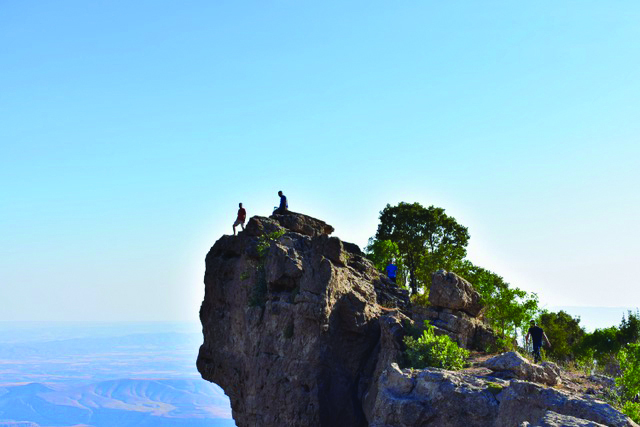This past summer, Ryan Zoellner ’20 traveled to Iraq to participate in a fellowship through the Middle East Initiative at Harvard Kennedy School. While there, Zoellner recorded his adventures.
Bane Bash From Erbil, Iraq!
It has been quite a week in the Middle East. As I write, the usual crowd has shuffled in for shisha and tea outside my Erbil hotel window, click-clacking away at their lightning-speed Rummikub (a fast-moving tile game). The azaan interrupts their games and signals prayer time as soon as all light leaves the sky.
Life moves at a different pace here, but much of it has to do with avoiding the heat. Temperatures during the day stay at around 102°F, and the direct sunlight is to be avoided at all times. This makes evenings the citywide coming-out period, and it is glorious. Since I have been here, I have spent most of my time wandering, eating street meats, and taking in the scenery.
Pomegranates & Cyberpunk
Week two has been lively as ever. The main development is we have started to get our project assignments at work. I’m on the team managing the first-ever non-oil export from the Kurdistan Region of Iraq (KRI): pomegranates. This means that my team will be going on trips to various pomegranate farms across the KRI to speak with those in charge.
On the first of these trips, we drove for three hours. The farther you go, the more mountainous it gets — incredibly beautiful. At each of the farms, we were given tons of apricots, apples, pears, and pomegranates straight from the tree.
Last night we went to a concert hosted by the French and German consulates in the Erbil Citadel amphitheater. There was a German “cyberpunk collective,” complete with leather pants and “untz untz.” I’ll take “Things one does not expect in Iraq” for $800, Alex.
Picnic at Lake Dukan
Over the weekend, my work team and I had our first major expedition as a group, a road trip up to Lake Dukan in a mountain village called Ranya. We found a little spot on the river, and it was ideal for the afternoon.
From there, we went on a short car ride up Mount Sara. As we started climbing, we passed through a village, turned a corner, and saw a gorgeous view of the landscape. Everyone thought our wanting to stop and take pictures here was funny — this was apparently small potatoes compared to where we were going.
When we got to the top, the hype was right. Even growing up in Idaho, the Tetons, Colorado, and living in Hood River, I was blown away.
Team Travels to Turkey
This past week, all of Kurdistan has been on vacation for the Eid al-Adha holiday, and the fellows and I all decided to spend our holiday exploring Turkey.
We viewed some of the world’s most famous mosques, including the 1,400-year-old Hagia Sophia, indulged in a Turkish bath house, hiked the rolling Turkish countryside, golfed in Antalya, and went on a shopping spree in Istanbul’s seemingly endless covered bazaar.
Sleepless in Suli
I write to you while spending a weekend in the great Kurdish city of Sulaymaniyah — the fifth-largest city in Iraq and a popular tourist destination.
I think I had the best falafel sandwich of my life; they also have these boiled beans covered in sour pomegranate sauce, which one of the fellows said justified the trip alone.
The best view of the city is from one of the town’s mountains: Azmar and Goizha. We drove up Goizha, and on a Friday night, it was clearly the place to be. Vendors, music, dancing people, and bottle shops line the drive up, and everyone on top is having a good time.
Religion in Kurdistan
The major pieces of the religious picture here include: Sunni Muslims (the vast majority of ethnic Kurds), Syriac Christians, Chaldean Christians, Jews, and Yezidis. While in Iraq, I have had the opportunity to learn of many of these religions.
As far as Catholic Mass goes, the experience here is a little different compared with in the U.S. For starters, everything is in Arabic, incense burns the entire time, and the music has a phenomenal central European sound to it.

I have also had the opportunity to visit a Lalish, which is the religious center of the Yezidi peoples. The name Lalish literally translates to “home,” which is an accurate reflection of how the Yezidis treat the space. Everything is made of a clean white stone, and families come to stay, feast, and hang out — sleeping in the hallways and courtyards and taking care of it as their own.
I also visited the Jalil Khayat Mosque, which is an important place of worship for Sunni Muslims. This impressive structure can fit up to 2,000 worshippers and is the largest mosque in Kurdistan and second largest in all of Iraq.

In Conclusion
If I had to sum up what I learned in the Middle East, I would say two things:
One, you really can get used to anything. The work environment, daily life, language, and temperature all seemed intimidating at first, but the graciousness of my hosts and the Kurds in general soon made me feel at home.
Two, immersion is one of the greatest tools for understanding a culture. I have been studying Iraq since I was a student at Colgate, but being able to sit down with friends and colleagues to talk, it is unbelievable how much more I was able to learn.
While in Iraq, I have made some remarkable friendships and plan to keep in touch with them in the years to come. In fact, I’m already trying to figure out how I can visit again as soon as possible!


